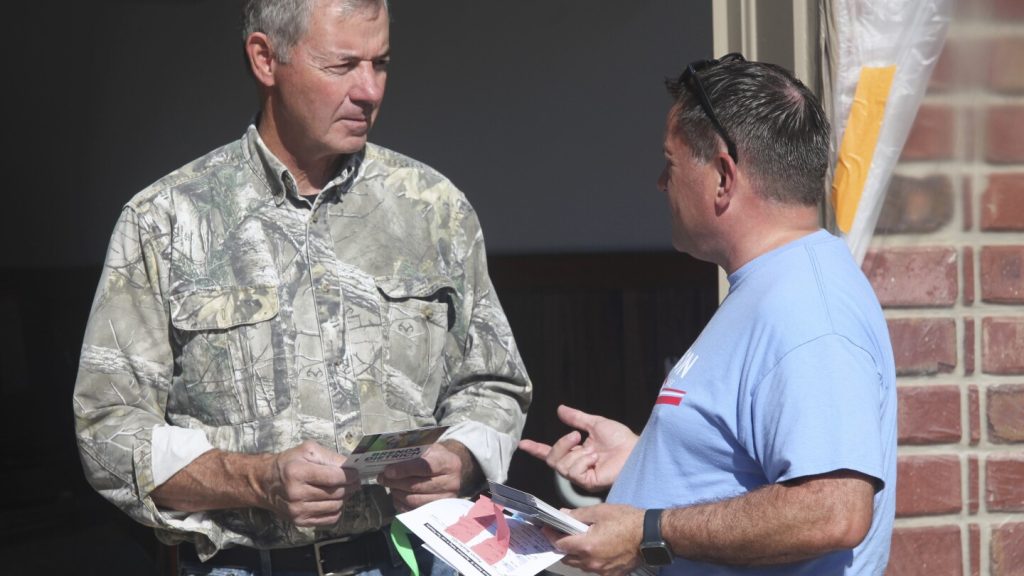The upcoming state legislative elections are attracting significant attention from both Democrats and Republicans, as control of state houses across the country hangs in the balance. With over 5,800 state legislative seats up for grabs in 44 states, both parties are expected to pour millions of dollars into these races. Some of the key battleground states include Arizona, Michigan, Minnesota, New Hampshire, Pennsylvania, and Wisconsin, where control of a chamber is still uncertain. Additionally, the Associated Press has identified 14 states where a swing of just three or fewer seats could determine whether a party holds a supermajority, giving them significant power to enact laws.
In Kansas, the race for a House seat in a traditionally Republican stronghold is heating up, with Democrat Vanessa Vaughn West challenging Republican state Rep. Angela Stiens. Democrats are hoping to gain just two seats in the House to break the Republican supermajority that has enabled them to override Democratic Governor Laura Kelly’s vetoes on key issues like abortion providers and transgender rights. West’s campaign is focusing on addressing rising property taxes, smaller government, and affordable housing in the area.
A similar battle is unfolding in North Carolina, where the flip of a single seat in either the House or Senate could end the Republican supermajority’s ability to override the governor’s veto. Republicans have used their supermajority to pass several laws, including restrictions on abortions and transgender rights, despite opposition from Democratic Governor Roy Cooper. The outcome of these legislative elections will have a significant impact on the state’s political landscape and the ability of the governor to govern effectively.
The issue of legislative supermajorities is becoming increasingly important in several states, with both Democrats and Republicans vying for control. In states like Nebraska, Kansas, Missouri, and Florida, Republicans hold supermajorities, while Democrats have dominant positions in states like California. However, gaining a supermajority is not a guarantee of political success, as internal factionalism within parties can sometimes hinder the passage of important legislation. Despite the potential power that comes with a supermajority, it does not always translate into legislative victories for party leaders.
The Kansas City suburbs and parts of southwestern Topeka are emerging as key battlegrounds in the upcoming state legislative elections, with both parties vying for control of these traditionally Republican areas. While the suburbs have become more racially diverse and friendlier to Democrats in recent years, Republicans are fighting to maintain their stronghold in these regions. Candidates are focusing on issues like education, tax cuts, and property taxes to appeal to voters in these areas and secure their support in the upcoming elections.
Overall, the outcome of the state legislative elections will have a significant impact on the political landscape in many states, with control of legislatures potentially shifting from one party to another. Both Democrats and Republicans are mobilizing their resources and efforts to secure key victories in these races, as the balance of power in statehouses across the country hangs in the balance. Voters will play a crucial role in deciding the direction of their states and the policies that will shape their communities in the years to come.














